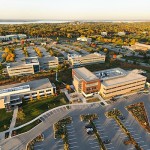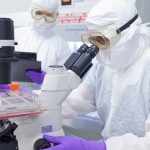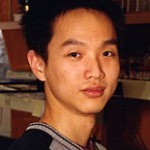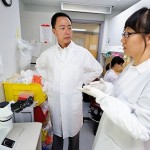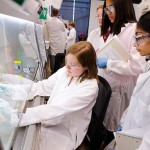Tag Stem cells
Hyer assumes leadership as University Research Park continues to grow
With last Friday's retirement of longtime University Research Park Director Mark Bugher, associate director Greg Hyer is assuming the role of interim director of the successful, 260-acre park on the West Side of Madison.
Biomanufacturing center takes central role in developing stem-cell therapies
Developing a new drug takes enormous amounts of time, money and skill, but the bar is even higher for a promising stem-cell therapy. Many types of cells derived from these ultra-flexible parent cells are moving toward the market, but the very quality that makes stem cells so valuable also makes them a difficult source of therapeutics.
Exhibiting signs of life
What if you could travel back in time 3 billion years, and take a breath? What would earth’s air smell like? Deeply stinky, according to Brooke Norsted, an outreach specialist for the University of Wisconsin–Madison Geology Museum.
Campus was hopping, at a summertime pace, while you were gone
Rebecca Blank arriving, Kevin Reilly leaving. Budget cuts and tuition freezes. Even if you were vacationing and unplugged over the summer, it was hard to miss these headlines. But you can be excused for not being on top of everything that happened on campus while you were away.
New gene repair technique promises advances in regenerative medicine
Using human pluripotent stem cells and DNA-cutting protein from meningitis bacteria, researchers from the Morgridge Institute for Research and Northwestern University have created an efficient way to target and repair defective genes.
Waisman scientists model human disease in stem cells
Many scientists use animals to model human diseases. Mice can be obese or display symptoms of Parkinson's disease. Rats get Alzheimer's and diabetes. But animal models are seldom perfect, and so scientists are looking at a relatively new type of stem cell, called the induced pluripotent stem cell (iPS cell), that can be grown into specialized cells that become useful models for human disease.
Engineered stem cell advance points toward treatment for ALS
MADISON, Wis. — Transplantation of human stem cells in an experiment conducted at the University of Wisconsin–Madison improved survival and muscle function in rats used to model ALS, a nerve disease that destroys nerve control of muscles, causing death by respiratory failure.
Down syndrome neurons grown from stem cells show signature problems
In new research published this week, Anita Bhattacharyya, a neuroscientist at the Waisman Center at the University of Wisconsin–Madison, reports on brain cells that were grown from skin cells of individuals with Down syndrome.
Two researchers named Shaw scientists
The Greater Milwaukee Foundation has chosen two University of Wisconsin–Madison researchers for 2013 Shaw Scientist Awards.
Adult cells transformed into early-stage nerve cells, bypassing the pluripotent stem cell stage
A University of Wisconsin–Madison research group has converted skin cells from people and monkeys into a cell that can form a wide variety of nervous-system cells - without passing through the do-it-all stage called the induced pluripotent stem cell, or iPSC.
With heart cells, middle schoolers learn the hard lessons of science
The drug trial is not off to an auspicious start. The cells are not cooperating.
Stem cell transplant restores memory, learning in mice
For the first time, human embryonic stem cells have been transformed into nerve cells that helped mice regain the ability to learn and remember.
Material screening method allows more precise control over stem cells
When it comes to delivering genes to living human tissue, the odds of success come down the molecule. The entire therapy - including the tools used to bring new genetic material into a cell - must have predictable effects.
Stem cell symposium to address heart, vascular disease
World leaders in the use of stem cells will gather Wednesday, April 10 at the BioPharmaceutical Technology Center Institute in Fitchburg, Wis., for the eighth annual Wisconsin Stem Cell Symposium, "Cell-Based Therapy for Heart & Vascular Disease: Pathways to Clinic."
UW stem cell pioneer Thomson earns innovation award
A prestigious scientific honor adds to the legacy of stem cell pioneer James Thomson.
Transplanted brain cells in monkeys light up personalized therapy
For the first time, scientists have transplanted neural cells derived from a monkey's skin into its brain and watched the cells develop into several types of mature brain cells, according to the authors of a new study in Cell Reports. After six months, the cells looked entirely normal, and were only detectable because they initially were tagged with a fluorescent protein.
Waisman Center: Celebrating 40 years of advancing knowledge about developmental disabilities
From her perch as director of the Waisman Center, and with an insider’s knowledge of its work to advance our understanding of developmental disability and the people it affects, Marsha Mailick sees a hopeful microcosm of the best attributes of the University of Wisconsin–Madison.
Nobel Prize winner to deliver 2012 Rennebohm Lectures
Mario Capecchi, winner of the 2007 Nobel Prize in Physiology and Medicine, will deliver the 2012 Rennebohm Lectures at UW–Madison on Monday and Tuesday, Oct. 22 and 23.

